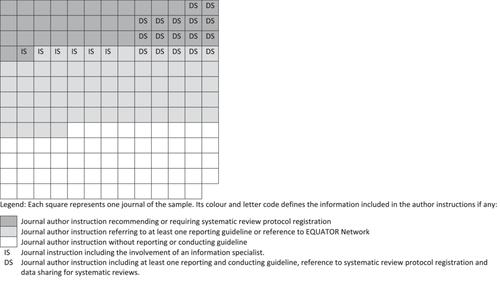Systematic reviews play a crucial role in informing clinical decision-making, policy formulation, and evidence-based practice. However, despite the existence of well-established guidelines, inadequately executed and reported systematic reviews continue to be published. These highly cited reviews not only pose a threat to the credibility of science but also have substantial implications for medical decision-making. This study aims to evaluate and recommend improvements to the author instructions of biomedical and health journals concerning the conducting and reporting of systematic reviews.
A sample of 168 journals was selected based on systematic reviews published between 2020 and 2021, taking into account their Altmetric attention score, citation impact, and mentions in Altmetric Explorer. Author instructions were downloaded, and data extraction was carried out using a standardized web form. Two reviewers independently extracted data, and discrepancies were resolved by a third reviewer. The findings were presented using descriptive statistics, and recommendations for editorial teams were formulated. The protocol is registered with the Open Science Framework Registries (osf. io/bym8d).
One-third of the journals lack tailored guidance for systematic reviews, as demonstrated by the absence of references to conducting or reporting guidelines, protocol registration, data sharing, and the involvement of an information specialist. Half of the author instructions do not include a dedicated section on systematic reviews, hampering the findability of tailored information. The involvement of information specialists is seldom acknowledged. Ultimately, the absence of an update date in most author instructions raises concerns about the incorporation of the most recent developments and tools for systematic reviews.
Journals that make substantial contributions to synthesizing evidence in biomedicine and health are missing an opportunity to provide clear guidance within their author instructions regarding the conducting and reporting of reliable systematic reviews. This not only fails to inform future authors but also potentially compromises the quality of this frequently published research type. Furthermore, there is a need for greater recognition of the added value of information specialists to the systematic review and publishing processes. This article provides recommendations drawn from the study's observations, aiming to help editorial teams enhance author instructions and, consequently, potentially assisting systematic reviewers in improving the quality of their reviews.


